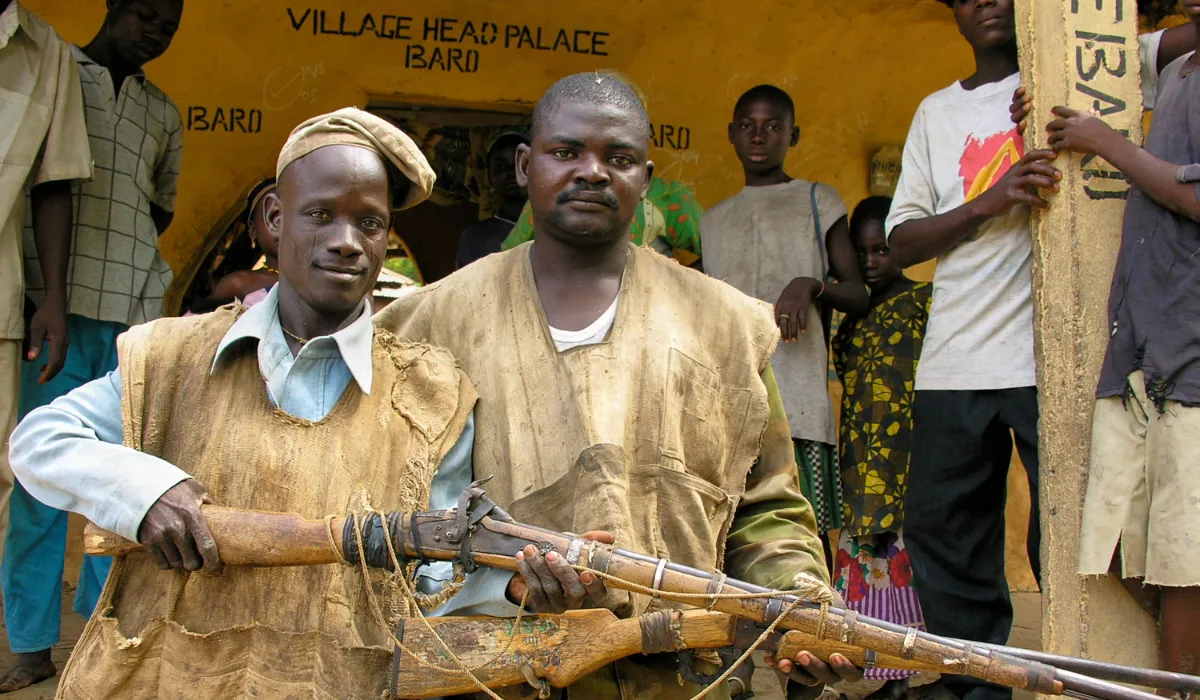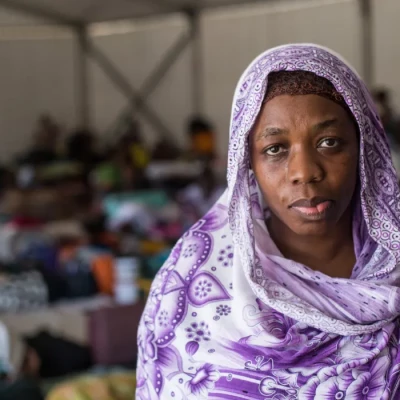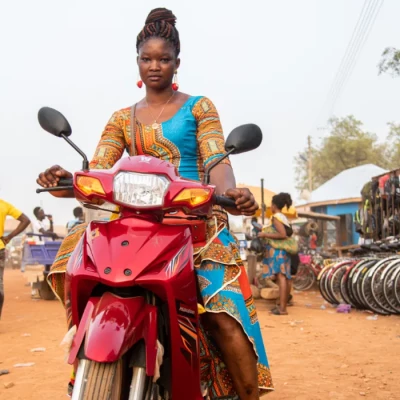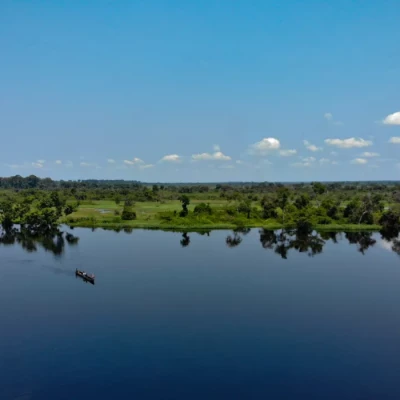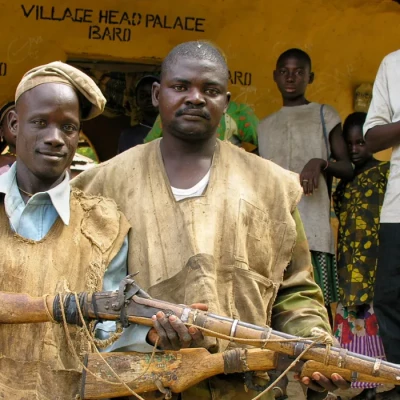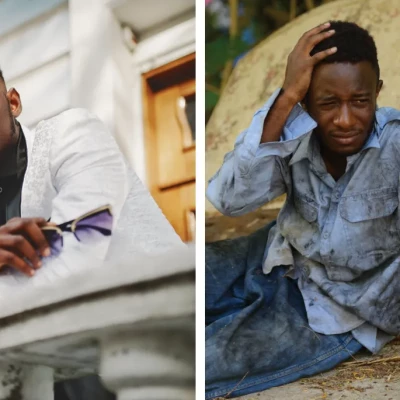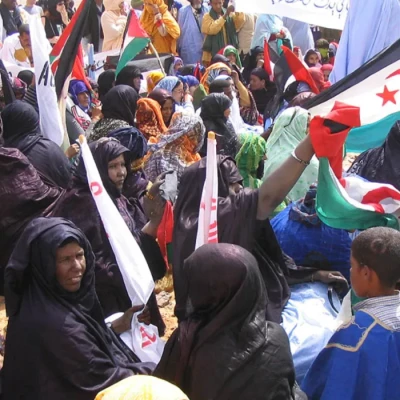This article interrogates to what extent rural spaces are affected by criminal recruitment and the perpetuation of violent conflict and crime. It further examines the drivers of the ruralisation of violence and how it affects the nature of violent conflict in Nigeria. It identifies the impact of the ruralisation of violence and criminalisation on conflict resolution and peacebuilding efforts, as well as exploring existing security measures, law enforcement measures, and community engagement programmes to promote sustainable peace, especially in rural Nigeria.
Adeleke et al.1Adeleke, G.F.; Lawal, M.O.; Lanre-Babalola, F.O.; and Akinpelu, T.O. (2023) ‘Effect of Social Cohesion on Crime Control Strategies Among Rural Dwellers in Nigeria’, Journal of Community Psychology, 51(7), 2697–2711. note that historically, rural areas, by their very nature, are known for social cohesion and rural dwellers are closely knitted such that there are shared emotions, strong family bonds, religious ties, and mutual trust, indirectly fostering effective crime control in rural areas. Ezejughu2Ezejughu, M.C. (2021) ‘High Rate of Unemployment and Crime Increase in Nigeria’, Sapiential Foundation Journal of Education, Science & Gender Studies, 3(1). states that urban areas have been centres known for intense organised crime, with high levels of urban poverty, congestion, unemployment, and moral decadence contributing to violent crimes like murder, armed robbery, kidnapping, terrorism, and high rural-urban migration. This, in turn, has an impact on crime and conflict. Today, our understanding of rural communities has significantly evolved in Nigeria. They have become unsafe and contested spaces marked by limited State presence, inadequate infrastructure, and scarce resources. According to Ojo et al.,3Ojo, J.S.; Oyewole, S.; and Aina, F. (2023) ‘Forces of Terror: Armed Banditry and Insecurity in North-west Nigeria’, Democracy and Security, 19(4), 319–346, https://doi.org/10.1080/17419166.2023.2164924 these conditions create fertile ground for violent conflicts and the recruitment of conflict participants. The absence of effective governance and security forces further exacerbates the situation, allowing extremist groups or criminal organisations to exploit the vacuum of state authority, thereby contributing to the cycle of instability in rural Nigeria. In 2020, Gustin and Slavic4Gustin, S. and Slavic, I.P. (2020) ‘Conflicts as catalysts for change in rural areas’, Journal of Rural Studies, 78, 211–222, https://doi.org/10.1016/j.jrurstud.2020.06.024 highlighted that rural regions, once primarily engaged in agriculture, have diversified their functions. Presently, rural areas are multifunctional and, unfortunately, have also become hotspots for criminal activities and violent conflicts in Nigeria. A typical example is the northern region of Nigeria, where there is an increased occurrence of terrorism, banditry, insurgency, and kidnapping.
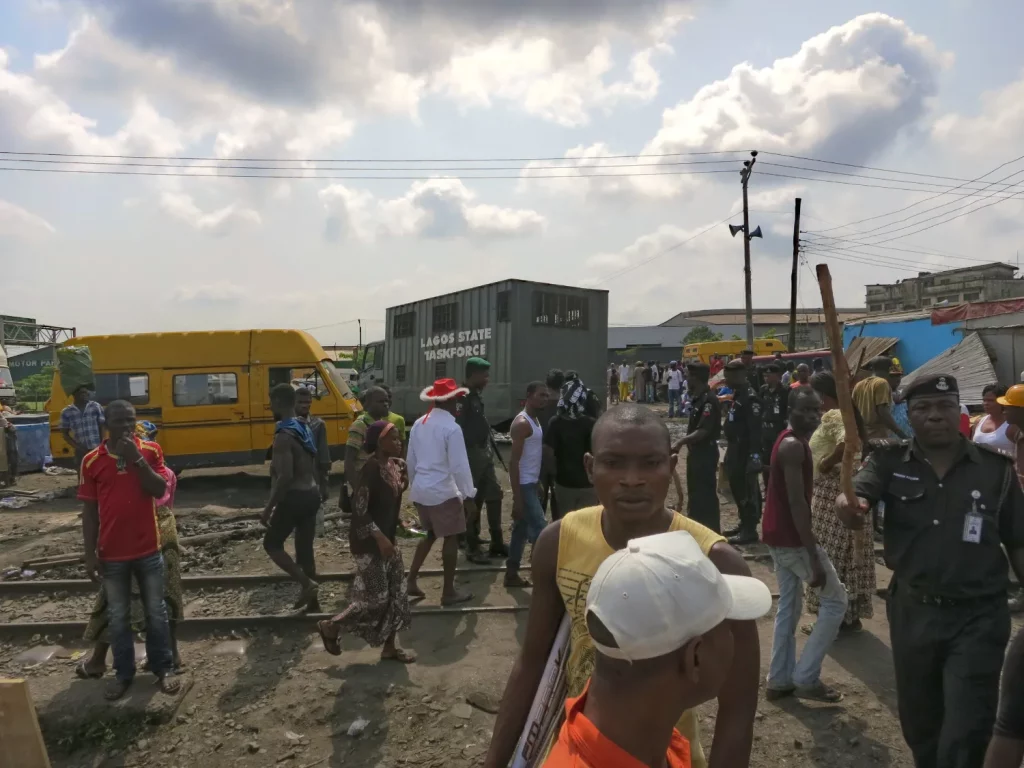
More attention has been drawn to urban crime, leaving rural crimes and conflict unaddressed. Arisukwu et al.,5Arisukwu, O.; Igbolekwu, C.; Oye, J.; Oyeyipo, E.; Asamu, F.; Rasak, B.; and Oyekola, I. (2020) ‘Community participation in crime prevention and control in rural Nigeria’, Heliyon,6(9), e05015. https://doi.org/10.1016/j.heliyon.2020.e05015 therefore, note that understanding the spatial and temporal distribution of violent conflict and crime in rural areas can help in conflict resolution efforts. Furthermore, the relationship between rural areas and crime has been a neglected area of research, with most literature focusing on urban contexts. However, recent scholarship has highlighted the importance of studying violent conflict, crime, and safety in rural environments. Though studies indicate that rural dwellers feel safer than their urban counterparts, this is not true in most parts of Nigeria. The geospatial nature of conflict and crime has shifted from urban to rural areas, thereby redefining crime and violent conflict. For instance, there have been studies on the relationship between the nearness of a rural area to an urban area and the potential for conflict occurring and crimes committed. ACLED6ACLED (2022) ‘Armed Conflict Location & Event Data Project’, Available at: https://acleddata.com [Date accessed: 27 February 2024]. and WorldPop7University of Southampton (2022) WorldPop database, Available at: https://www.worldpop.org [Date accessed: 27 February 2024]. reports on violent events by distance from urban areas from 2000 to 2021 show that in 2000, violence occurred 10 km from urban areas, and in 2021, it was over 200 km from urban areas. This indicates that the overall locational trends in violence have shifted from urban to rural.
Additionally, the resilience capacity of rural dwellers is weak, traditional conflict management mechanisms in these areas are also low or weak, and government systems do not have a firm grip on the management of violence. This has allowed a variety of actors to become involved in crime, leading to a reconfiguration of rural dynamics and making violence more protracted. Therefore, there is a need to study how the rural areas, once safe spaces, have now become contested spaces for violent conflict and crime in Nigeria.
Ruralisation of violence in Nigeria
The process of violent ruralisation refers to the shifting focus of conflict from urban centres to rural areas. A 2023 Organisation for Economic Development Cooperation (OEDC)8OEDC (2023) ‘Urbanisation and conflicts in North and West Africa’, Available at: https://www.oecd-ilibrary.org/development/urbanisation-and-conflicts-in-north-and-west-africa_3fc68183-en [Date accessed: 27 February 2024]. report states that North and West Africa are undergoing rapid urbanisation. While cities and urban areas have always been sites of conflict, given their political and economic importance, many insurgencies, rebellions, and separatist movements are associated with rural areas. In the violent conflicts in the rural areas of Nigeria, resource scarcity and competition (land and water disputes), marginalisation and poverty9Olumba, E.E.; Nwosu, B.U.; Okpaleke, F.N.; and Okoli, R.C. (2022) ‘Conceptualising eco-violence: moving beyond the multiple labelling of water and agriculture resource conflicts in the Sahel’, Third World Quarterly, 43(9), 2075–2090, https://doi.org/10.1080/01436597.2022.2083601 significantly affect development outcomes and have emerged as critical concerns.
Violent conflicts in rural areas in Nigeria have had profound effects on communities. They strain social bonds, disrupt economic activities, and create an atmosphere of fear and uncertainty.10Odozi, J.C. and Oyelere, R.U. (2019) ‘Violent conflict exposure in Nigeria and Economic welfare’, IZA Institute of Labor Economics, Available at: https://docs.iza.org/dp12570.pdf [Date accessed: 25 February 2024]. The impact is particularly acute in rural areas, where resources are scarce, infrastructure is limited, and access to essential services is often compromised. These conflicts have exacerbated poverty,11Ibid. displaced families, and perpetuated cycles of violence, leaving lasting scars on communities and triggering retaliation and revenge, breakdown of trust, displacement of families and disruption of social systems, trauma and radicalisation, internalisation of aggression and vengeance, economic decline, and weak institutions and impunity.12Agbor, U. I. and Eteng, F. (2018) ‘Challenges of rural women in agricultural production and food sufficiency in Cross River State, Nigeria’, Advances in Social Sciences Research Journal, 5(12), https://doi.org/10.14738/assrj.512.5803
Boko Haram has inflicted widespread violence in Nigeria’s north-eastern region. Notably, the Chibok schoolgirls’ kidnapping in 2014 remains etched in memory, as over 200 schoolgirls were abducted from their rural school in Borno State.13Nextier SDP (2023) ‘2022 Annual Review of Nigeria Violent Conflict Profile’, https://reliefweb.int/report/nigeria/2022-annual-review-nigerias-violent-conflict-profile [Date accessed: 26 February 2024]. Disputes between nomadic herders and farmers over land use, water, and grazing routes have escalated. Climate change and desertification exacerbate these conflicts, leading to increased tension and violence. The clashes have far-reaching consequences, affecting livelihoods, food security, and social cohesion. Criminal dimensions, including cattle rustling, have been introduced into these clashes, further complicating the situation.14Nnaji, A.; Ratna, N. N.; Renwick, A.; and Wanglin, M. (2022) ‘Risk perception, farmer-herder conflicts, and production decisions: Evidence from Nigeria’, European Review of Agricultural Economics, 50(1), 1–33, https://doi.org/10.1093/erae/jbac012 In the Niger Delta, piracy, oil bunkering, and militant activities have disrupted rural communities. Kidnapping for ransom is prevalent, with criminals targeting not only expatriates but anyone deemed lucrative. The region’s vulnerability due to environmental degradation and resource exploitation has allowed criminal enterprises to thrive. The impact extends beyond economic losses, affecting community trust and stability. Therefore, criminal enterprises have exploited the region’s vulnerabilities. The South East has witnessed ongoing separatist agitation by groups like the Indigenous People of Biafra (IPOB). While the initial movement focused on self-determination, criminal elements have hijacked these movements, enforcing their structures, holding the State hostage, perpetuating violence, and undermining peace efforts.15Nwangwu, C. (2023) ‘Neo-Biafra Separatist Agitations, State Repression and Insecurity in South-East, Nigeria’, Society,60(1), 40–53, https://doi.org/10.1007/s12115-022-00782-0 Hence, non-state actors exacerbate governance gaps, contributing to conflict resurgence.
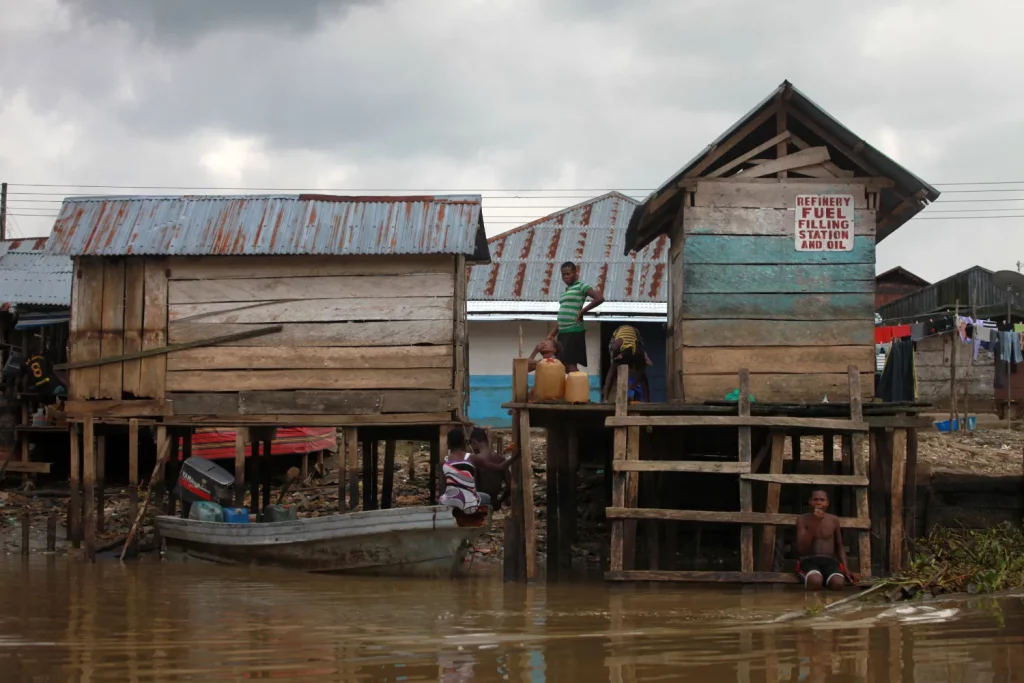
Criminalisation of conflict in Nigeria
The study of criminalisation and violent conflict in Nigeria explores the intricate web of criminal networks operating within conflict zones and how these intersect with criminal activities.16Jesperson, S. (2017) ‘Conflict Obscuring Criminality in Nigeria: Addressing conflict and crime in Nigeria with a comprehensive approach’, Available at: https://unu.edu/cpr/blog-post/conflict-obscuring-criminality-nigeria [Date accessed: 27 February 2024]. A report by Azad et al17Azad, A.E.; Crawford, E.; and Kaila, H. (2018) ‘Conflict and Violence in Nigeria: Results from the North East, North Central, and South South Zones’, World Bank.. on conflict and violence in Nigeria notes that this intersection blurs the lines between conflict dynamics and illicit behaviour. The convergence of violent conflict and crime explains how violent conflicts often create fertile ground for criminal enterprises to thrive. For instance, armed groups exploit conflict situations to fund their operations through illicit means. Criminalisation occurs when conflict actors engage in criminal activities, such as kidnapping, extortion, human trafficking, and drug trafficking. Examples of criminalisation in Nigeria include banditry and kidnapping, which involves groups raiding villages, kidnapping civilians, and burning down houses. Kidnapping for ransom (K4R), which is an organised crime, has become a lucrative criminal enterprise.18Akogwu, C.J.; Ezeh, K.D.; Aideloje, S.; and Yildom, K.D. (2023) ‘Kidnapping for Ransom (K4r) and Human (In)Security in Nigeria: Issues and Trends’, African Journal of Terrorism and Insurgency Research,4(2), https://journals.co.za/doi/full/10.31920/2732-5008/2023/v4n2a4
Boko Haram has also engaged in extortion,19Adisa, W. (2021) ‘Transnational Organised Crime, Terrorist Financing and Boko Haram Insurgency in Nigeria’, Journal of Terrorism Studies, 3(1), 1–26, https://doi.org/10.7454/jts.v3i1.1028 targeting businesses, individuals, and communities for financial gain. The group’s attacks on schools, churches, and mosques have both ideological and criminal dimensions.20Amuzie, O. (2024) ‘Conflict Entrepreneurship and the Cost for Development in Nigeria’, Caleb Journal of Social and Management Science, 4(1), 98–116. Certain cults, initially formed for camaraderie, have evolved into criminal organisations.21Nyiayaana, K. (2011) ‘From University Campuses to Villages: A Study of Grassroots-based Cult Violence in Ogoniland’, ERAS, 12(2), 1–35. These cults engage in violence, drug trafficking, and territorial disputes, further complicating the security landscape. Armed gangs have been increasingly menacing the northwest region of Nigeria, taking cattle, goods, and ransom money from rural farms and villages.22Africa Center for Strategic Studies (2021) ‘Criminal Gangs Destabilizing Nigeria’s North West’, Available at: https://africacenter.org/spotlight/criminal-gangs-destabilizing-nigerias-north-west [Date accessed: 27 February 2024]. According to the Africa Centre for Strategic Studies,23Ibid. these gangs often operate from forest bases far from city centres. Since 2020, the criminal gangs have reportedly been involved in over 350 violent events linked to more than 1 500 fatalities. Furthermore, armed groups have exploited conflict situations to fund their operations through criminal means as they engage in criminal activities to augment and finance their operations.
Conflict-driven criminalisation occurs when armed groups exploit local communities by demanding protection money, taxes, or ‘war contributions.’ Additionally, these groups control trade routes, imposing taxes on traders for profit.24Moffett, L. (2021) ‘Violence and repair: The practice and challenges of non-State armed groups engaging in reparations’, International Review of the Red Cross, 102(915). Onuoha and Okolie-Osemene25Onuoha, F.C. and Okolie-Osemene, J. (2019) ‘The Evolving Threat of Kidnapping for Ransom in Nigeria’, In Oshita, O.; Alumona, I.; and Onuoha, F. (Eds), Internal Security Management in Nigeria, New York: Springer, pp. 233–258. argue that kidnapping for ransom has evolved into a lucrative enterprise, targeting both specific and random individuals. The funds obtained from ransom payments are used for arms purchases, recruitment, and logistical operations. Sinno26Sinno, A.H. (2011) ‘Armed groups’ organizational structure and their strategic options’, International Review of the Red Cross, 93(882), 1–22. and Krieger27Krieger, H. (2018) ‘International Law and Governance by Armed Groups: Caught in the Legitimacy Trap?’ Journal of Intervention and Statebuilding, 12, 563–583. emphasise that armed groups aim to establish parallel structures where they enforce taxes, provide services, and impose their laws. Moreover, the war economy or profiteering creates an economic ecosystem benefiting arms dealers, warlords, and corrupt leaders amidst instability.
Another example is conflict entrepreneurship, a form of criminalisation of violent conflict. Conflict entrepreneurs, whether individuals or groups, adeptly exploit violent conflict situations for their benefit.28Ibid. Their activities span a spectrum, from arms trafficking and smuggling to providing services to armed groups, including logistics support and intelligence gathering. These actors thrive in environments where State institutions falter, law enforcement proves ineffective, and governance structures crumble due to conflict-induced instability. Nigeria’s conflict zones harbour unique economic opportunities, shaped by disrupted markets, heightened demand for specific goods and services, and reduced competition. For instance, the surge in arms trading and trafficking is palpable in Nigeria. Conflict entrepreneurs capitalise on this illicit market, profiting from selling weapons to armed groups. In another example, Muhammad,29Muhammad, S. (2019) ‘The untold story of gold mining in Zamfara state’, Blueprint, 25 April, Available at: https://blueprint.ng/the-untold-story-of-gold-mining-in-zamfara-state [Date accessed: 27 February 2024]. in his report on mining in Zamfara State, noted that illegal mining has become a source of income not just for persons in the state, but also for people from neighbouring states like Sokoto, Kebbi, Katsina and Kaduna. As a result, thousands of people from far and near relocated to Zamfara to earn a living through local gold mining exploration.
Conflict entrepreneurs play a pivotal role in the logistics and supply chain within conflict-affected regions. Their networks ensure the movement of goods and services, often under the radar. In conflict-affected regions, informal economies have risen as formal markets falter. Conflict entrepreneurs thrive within these adaptive networks. Necessity drives entrepreneurship – people turn to small-scale trade and other activities to survive amidst conflict-induced scarcity.
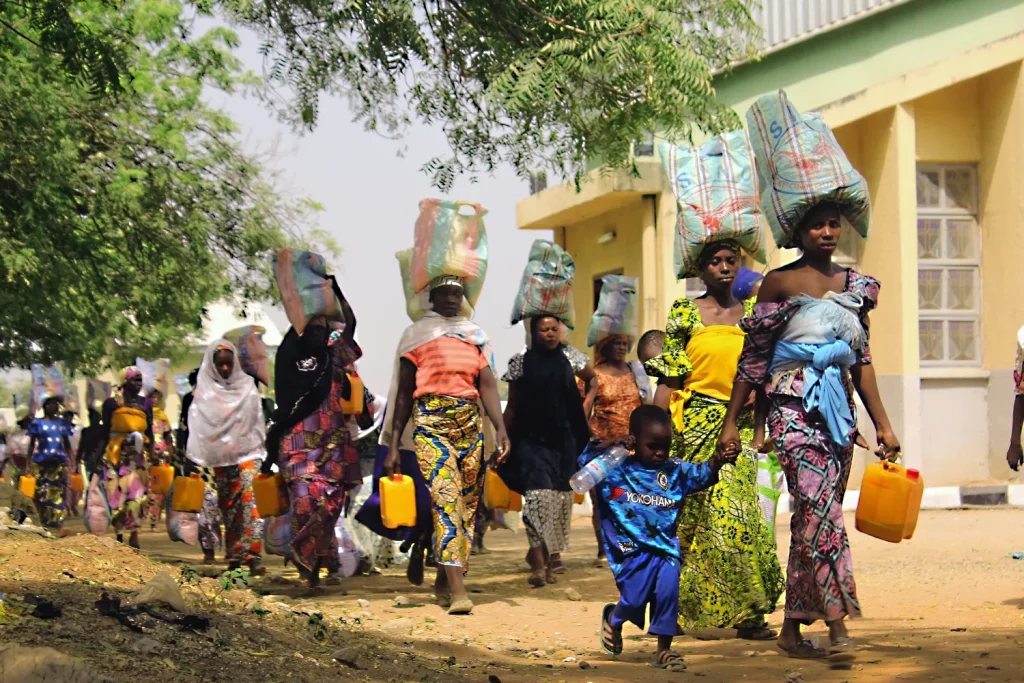
Drivers of criminalisation and violent conflict in rural spaces
Some of the drivers of the criminalisation and violent conflict in rural spaces in Nigeria include:
a. Resource scarcity and struggle for survival: Rural areas often face limited access to resources, such as land, water, and livelihood opportunities. Armed groups exploit this scarcity, engaging in criminal activities to sustain their operations. For instance, in Nigeria, clashes between nomadic herders and settled farmers escalate due to competition for scarce resources, such as grazing land and water.
b. Weak governance and State presence: Rural spaces may lack effective governance structures, law enforcement, and social services. Criminal networks thrive where State presence is weak, perpetuating violence. For instance, insurgency in northeast Nigeria, where law enforcement or community policing architecture is weak and there is a lack of effective governance structures, allows armed groups like Boko Haram to operate with relative impunity.
c. Ethnic and communal tensions: Rural communities often have deep-rooted ethnic, religious, or communal divisions. These tensions can escalate into violent conflicts, creating fertile ground for criminal activities. An example is in Plateau State, where communal clashes are deeply rooted in ethno-religious divisions in rural communities, which leads to violent conflict. The tension in Plateau State to date has created a fertile ground for criminal activities, reprisal attacks, and militias to engage in unprovoked attacks.
d. Climate change and environmental stress: Environmental degradation, climate variability, and resource depletion exacerbate rural distress. Armed groups exploit vulnerabilities arising from environmental stresses, for example, in the farmer-herder conflict. Additionally, resource scarcity in the Lake Chad Basin has resulted in environmental degradation, desertification and water scarcity, in turn exacerbating rural distress. The vulnerabilities arising from these environmental stressors expose people to conflict and competition over scarce resources.
e. Demographics and migration: Population growth, youth unemployment, and internal migration strain rural areas. Criminal networks recruit disaffected youth, further perpetuating violence. Nigeria and many African countries are experiencing a youth bulge, which should be a blessing but has been a curse and a source of worry due to unemployment, which drives disaffected young people to become criminals or conflict entrepreneurs. The pool of unemployed youths has been a source for recruitment.
f. Historical grievances and identity politics: Past injustices, unresolved grievances, and identity-based conflicts fuel violence. Criminal actors manipulate historical narratives for their benefit. For example, the Ogoni conflict in Niger Delta, which is related to oil exploitation, has been neglected by the government, and this has fuelled violence. Criminal actors manipulate narratives of injustice to justify criminal activities.
g. Transnational networks and illicit trade: Rural spaces serve as transit points for arms proliferation, drug and human trafficking, and hideouts for criminals. Criminalisation occurs when armed groups profit from these illicit activities. Arms trafficking occurs especially in border regions. Rural spaces along Nigeria’s borders serve as transit points for arms smuggling, and armed groups profit from illicit trade, sustaining their operations.

Conclusion and recommendations
The ruralisation and criminalisation of violent conflict in Nigeria is a serious threat to the peace, security, and development of the country. The drivers of the ruralisation of violent conflict in Nigeria include socio-economic factors, environmental factors, political factors, and security factors. These drivers create grievances, competition, and mobilisation among different actors in rural areas. Rural communities in Nigeria face a dual reality: they are both vulnerable to violent criminal activities and violent conflicts, yet they also possess untapped potential for growth and prosperity. Structural marginalisation and neglect have limited their capacity to thrive.
The criminalisation of conflict affects the nature of conflict in Nigeria by making it more complex, protracted, and intractable. Criminalisation also undermines the legitimacy of the State, erodes the rule of law, and fuels human rights violations. The ruralisation of violence has negative impacts on conflict resolution and peacebuilding efforts in Nigeria, as it poses challenges for dialogue, negotiation, mediation, and reconciliation. Existing security measures, law enforcement measures, and community engagement programmes are insufficient to address the ruralisation of violence and criminalisation of violent conflict in Nigeria. Hence, there is a need for more comprehensive, coordinated, and context-specific interventions that involve multiple stakeholders and address the root causes and consequences of the problem.
Examining the rural context allows policymakers to pinpoint vulnerabilities, resource constraints, and historical factors that fuel conflict, which paves the way for an appropriate policy framework for conflict resolution in rural areas that avoids a one-size-fits-all approach in the policy framework for conflict resolution and prevention.
Moreover, it is essential to have mechanisms in place to distinguish between conflict and crime, especially those that occur in rural areas due to violence. Conflict can escalate into criminal activities, thereby muddying the distinction between the two. Therefore, it is necessary to bolster local policing efforts and engage stakeholders through security risk and preventive measures. This approach ensures a comprehensive understanding and effective management of violence and crime in rural contexts. A bottom-up community strategy approach to security should be introduced, strengthening rural community policing and local government systems. This approach would empower communities to take an active role in maintaining their own security.
Dr Joseph Ochogwu is the Director General of the Institute for Peace and Conflict Resolution (IPCR) in Abuja, Nigeria. He possesses over 20 years of experience in multi-disciplinary peace, conflict and social integration. He has sector-specific skills in policy formulation, diagnostic and prognostic analytical research – explicitly related to peacebuilding, conflict transformation and resolution, parliamentary reform, leadership and organisational development, policy analysis, and social development. He takes leadership roles in promoting methodological approaches to conflict mitigation activities and programme management strategies. He also specialises in using political economy analysis tools and approaches to deliver evidence-based reports for clients.

